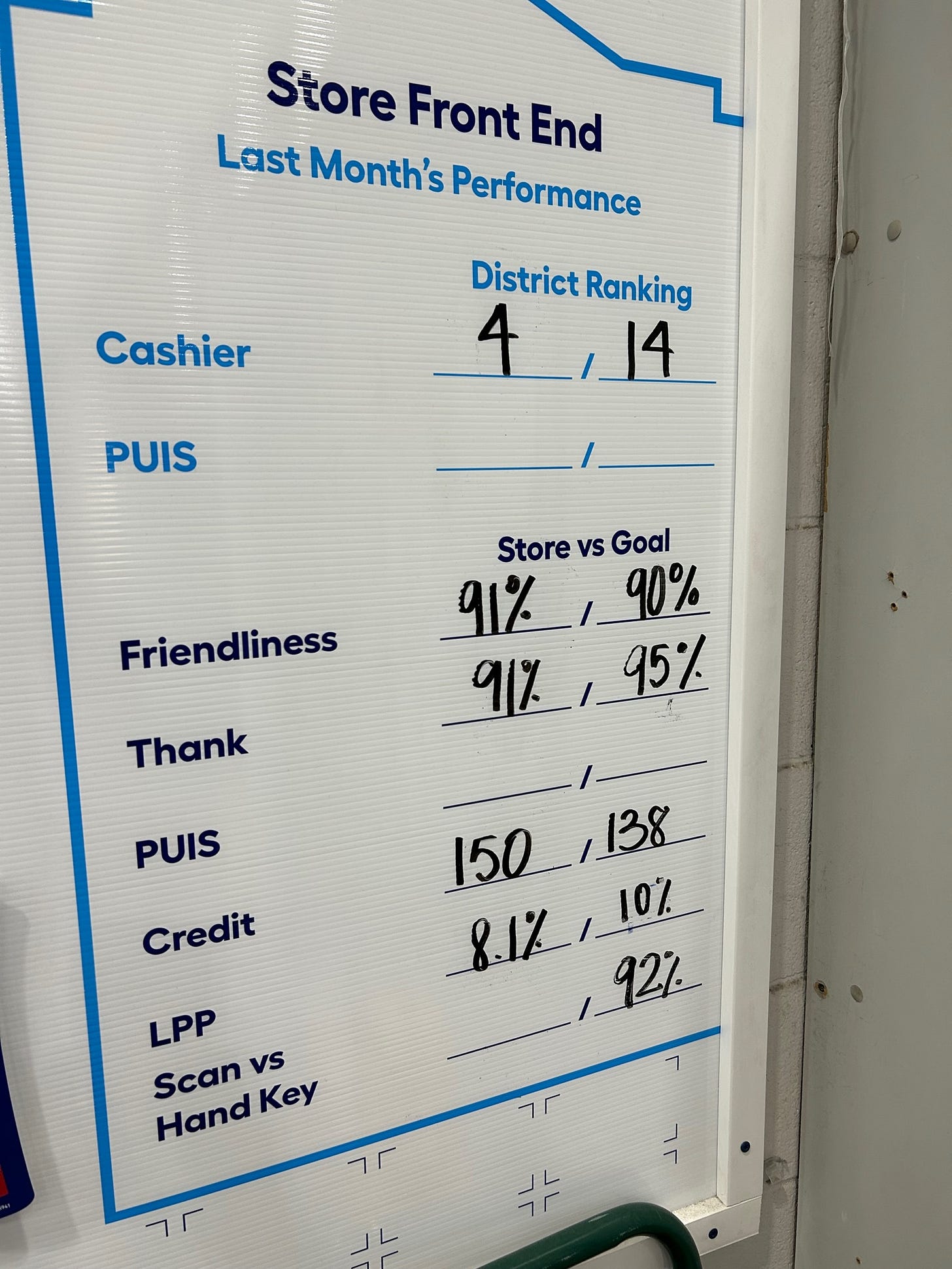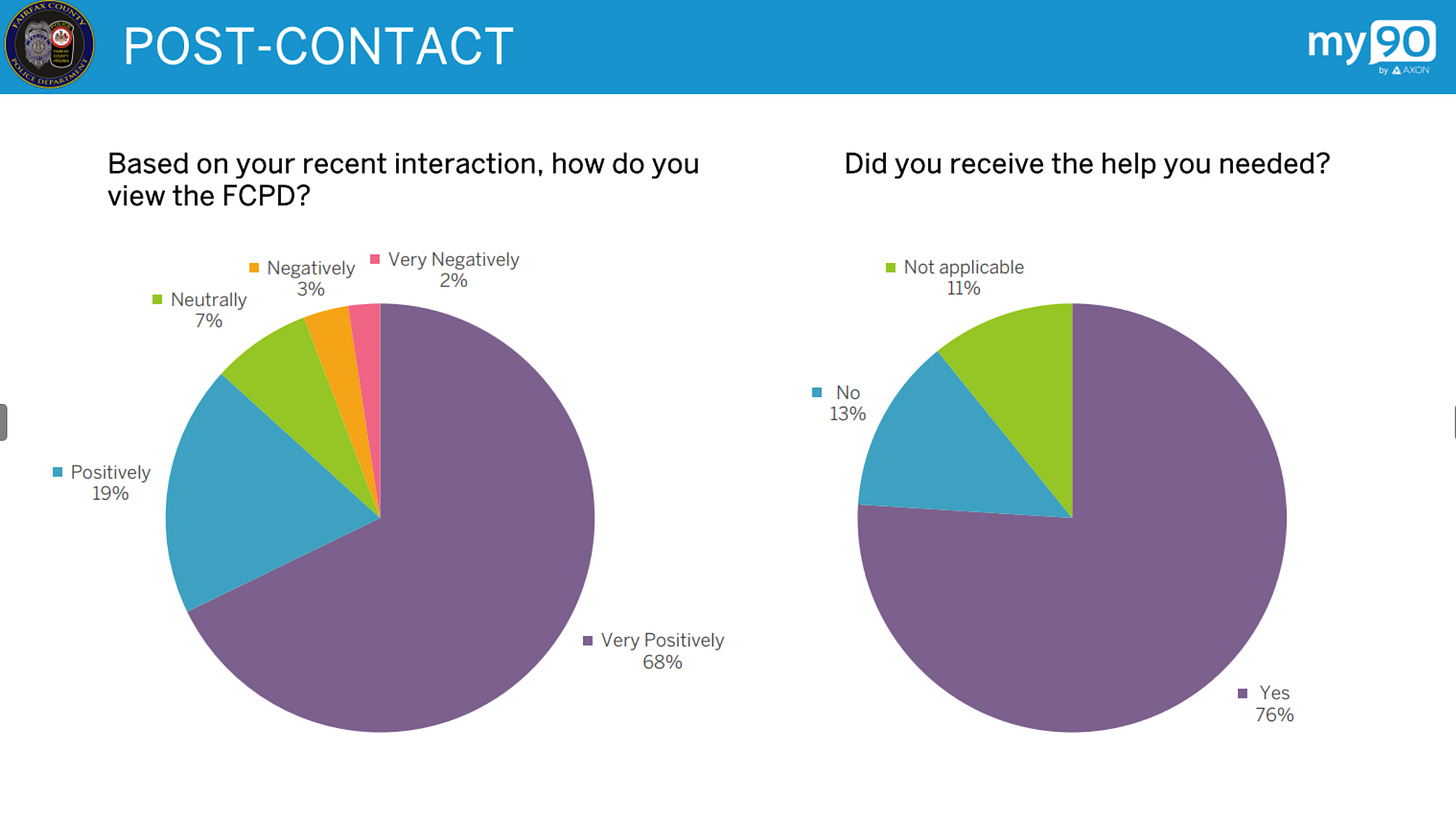Do We Have A Customer Service Problem?
It's Time To Show Just How Good Law Enforcement Is
While law enforcement leaders continue to chase “community trust” and the scam that it is, there is a more pressing and vital issue that should be addressed. Unlike “trust”, that is a vague metric, used against the profession regardless of how much we dance around and use Tik Toc, the issue of customer service is a mainstay in the private industry that often times makes or breaks a business.
Why We Have Failed
Law enforcement has been able to get away with ignoring this issue for a few reasons but the main reason is that we are not held to the same standard as all other industries. In a former life, I owned a restaurant and while the quality of food was important, it did not compare to the importance of how customers were treated. Regardless of how good the food was, if a customer was not treated right, they wouldn’t come back and all businesses die without repeat customers.
Law enforcement has been able to get away with a lackluster approach to customer service because citizens have to come back. If someone is treated poorly by law enforcement on a Monday, they don’t get to call a different agency on a Tuesday.
Sleight of Hand
In recent years, law enforcement leadership has been duped by a bunch of magicians. Politicians claim that we need to change because of “community trust” and even the IACP has launched entire programs on “trust” and the onslaught of demands have distracted leaders from actually addressing what the profession needs. The truth is nothing we will do will ever make these trust monsters happy. Those that supposedly don’t trust the only profession that willingly films every action of the day will never be happy and it’s time that our leaders stop violating an important principle of Courageous Police Leadership - never let feelings redefine facts – and get serious about this thing called leadership.
Customer Service v. Public Opinion
I’m not the first person to address the issue of customer service in law enforcement and some leaders have considered it. I know of one agency that gave customer service training to every officer and while that’s valuable, I am much more interested in being able to evaluate our level of customer service. I know several agencies that attempt this evaluation by doing community polling, but this is massively flawed and not generally conducted in the private industry for a very important reason.
Public opinion about law enforcement generally doesn’t come from the agency but from third party entities that we don’t control. Whether it’s the media, politicians, or the latest activist “outrage” on social media, measuring what others think about your police department that haven’t had contact with your police department is borderline stupid. That hasn’t stopped the “trust” scam from dismantling multiple agencies as we jump through the reform hoops but leaders are going to have to make a decision if they truly want to make their agency great.
They can either worry about what civilians actually think of their police department after they engage with the police department or what others believe that have no idea about the police department.
The answer is pretty easy considering Apple, Microsoft and just about every other business could care less what people think that aren’t their customers. They focus in on what they can control…what their customers believe and care about.
What We Can Do
The most effective way to describe what we can do about customer service is what others do and don’t do. I recently visited a local retailer and noticed the below signage when I went to purchase my items.
I’ve known Abraham for about a year, a nice and diligent employee, and I asked him if each employee is evaluated on “friendliness” and was that what the displayed metric meant. He explained that there are several items that they are evaluated on but friendliness was an important one.
I asked him if his employer did what law enforcement did…Wait for a complaint on an employee and then train the entire corporation based on that complaint? I knew the answer, but I also know all too well the emotional reaction within law enforcement and what many leaders have done in the past just to “check the box” and say we have done something.
Abraham laughed and said, “no, we are individually evaluated and if someone is lacking in what is expected, that employee is given the training and resources to improve.”
A shocking revelation of what actual leadership looks like.
What It Should Look Like
Whether you go to a retail store, rent a car, or fly on an airplane, the quality of the service that you are provided is consistently evaluated through a survey process. Businesses then use those surveys to help and improve how they interact with their customers.
There is a myriad of ways that this can be done but law enforcement leaders must grasp some very important concepts:
1. We need to stop worrying about those that have never met us and focus on those that have.
2. What we evaluate must be what we actually control. Police officers don’t generally control response times or “happiness” but we do control professionalism.
3. We should evaluate not only individual employees but also squads and divisions as a whole. That will assist in determining if an issue is individual or more cultural.
4. When an individual or group is an outlier and not performing as well as others, we should address that with training and mentoring rather than automatic discipline.
5. We should “gamify” this in a sense and permit officers to see their ratings and compare their behavior with others around them. Just like the sign hanging within eyesight of Abraham, this will encourage officers to keep how they treat others in top of mind.
There are many other details on how to do this and I even launched a company several years ago to address this (before I figured out the expense of software development and that I may have been the only one that cared about it) but this matters and leaders everywhere other than law enforcement seem to embrace it.
Backlash of Change
I’ve heard most of the excuses for not doing this. Whether it’s “we are not a business” or “we are setting up our officers for discipline,” I wholeheartedly disagree. While we may not be measured by profit/loss, we are clearly in the business of crime reduction and to do that effectively, we need citizens (customers) that are happy with how they are treated. It is those citizens that call with information and help us do our job. Unlike a restaurant, they don’t get to go somewhere else if they aren’t happy with how they are treated, which makes our evaluation and monitoring even more important.
Like any new concept, how this is rolled out will determine the success. If leaders treat this as an asset to officers and a method to help them improve rather than bash them on the head, it works. I know our history and I know the skepticism that will come with this but the alternative is what we are doing now and frankly, that must stop.
Kryptonite Against Crazy People
Admittedly, I have an agenda with my desire to do what the private industry has done for years. Law enforcement is so quick to change, apologize, and look plain weak with the complaint of a few others and in most cases, it is a high level of manipulation that we seem to keep falling for.
Law enforcement would beat any industry in professionalism…even Chick-fil-A (my pleasure) but we are doing nothing to evaluate that and show that. Every cop reading this knows that almost every citizen they will encounter on their next shift will thank them and appreciate their efforts but that doesn’t count when the purple hair activist complains at the next city council meeting.
But what if it did?
What if the next high-profile complaint or “tweet” saying how terrible an agency was could be evaluated in context?
What if the police chief had the ability to actually look at data to determine how the agency was doing?
What if the chief was able to look at years of data and actually show the improvements through the years?
What if the chief could observe a pattern by an individual or group, and correct the issue long before the complaint arrives?
This is exactly what the Fairfax County Police Department did over the last year. Using the My90 program, the agency sent text messages to people who reached out to their agency requesting services. Over 9,500 residents who had interacted with an officer responded. Just 5% viewed the encounter negatively and 90% of respondents viewed their interaction with the police department as positive.
Law enforcement has all but been destroyed based on isolated incidents, vague complaints, and weak leaders applying all of that to an entire agency.
It’s time to put an end to it and show the public just how good we actually are.
Dr. Travis Yates is a commander with a large municipal police department and author of “The Courageous Police Leader: A Survival Guide for Combating Cowards, Chaos & Lies.” His risk management and leadership seminars have been taught to thousands of professionals across the world. He is a graduate of the FBI National Academy with a Doctorate Degree in Strategic Leadership and the CEO of the Courageous Police Leadership Alliance.





Travis, thank you yet again for telling the truth. : )
Somehow we missed the Inaugural National Professional Law Enforcement Community Engagement conference in Atlanta early this month.
"The conference aims to explore how community policing can be implemented to restore trust and address racial tensions in communities across the country. Reverend Markel Hutchins, president and CEO of social justice advocacy group MovementForward, emphasized that community engagement is not just about hosting events, but should drive every level of public safety."
We could just chase intangibles instead of measurable data like crime. Great job Dr. Yates.